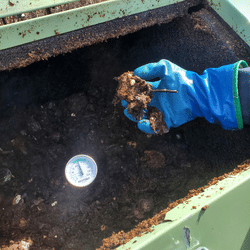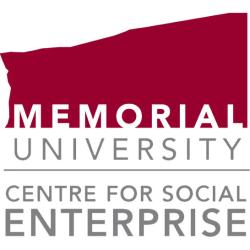buying local? supply chains matter!
don't forget the bigger, global picture

The buy local movement is here! We see signs of it in advertising, news reports on food security and on product labels. The buy local movement appeals to conscious consumers using purchasing power for more responsible consumption. More broadly buying local implies using supply chains for positive impact.
Local Benefits
Supply chains are systems that include the processes and networks of organisations and individuals needed to produce and deliver a product or service to market. How do local supply chains benefit local businesses and community? They have economic impact through contributions to the local economy, including job creation and wealth generation. Money is retained and circulates through the local economy. Environmental benefits are touted through reduction of the carbon footprint that is created by importing goods. Developing local supply chains may also decrease dependency on imports (a concept referred to as ‘import replacement’) for greater e.g. food security. Local production can be encouraged through institutional purchasing through favorable procurement processes.
Social Responsibility
Global supply chains have been under scrutiny due to documented human rights abuses (such as forced labour, human trafficking, sexual harassment of women) and environmental violations, not to mention high profile scandals such as the Rana Plaza disaster. However, we must not assume that ‘local’ guarantees ‘ethical’. How much of ‘buy local’ is about marketing spin as opposed to creating positive local impact?
Businesses in the local supply chain should demonstrate that goods put into the local market are produced responsibly. Product traceability is one approach that has gained prominence as consumers increasingly demand to know where their products come from. Beyond proving the origin of their products, businesses that claim to do good are charged to show how they are improving their supply chains. Businesses that have the B Corp or Buy Social Canada certification are signaling that they are responsible partners to engage with and that they care more about the bottom line by meeting higher standards of social responsibility and sustainability. B Corporation and Buy Social Canada offer directories of certified businesses for supply chain planning. Guide to the Good as an initiative helping consumers make purchasing choices is another possible resource for businesses to identify suppliers in their supply chains. (Editors note: Aww, shucks. Thanks, Nicole!)
Buy local, act global
Even as local supply chains are seen as a way to seek more self-reliance and resilience through the strengthening of local economies, the buy local movement bears a risk of being politicised as protectionism. Also, it should not be a way to ‘opt out’ of tackling challenging issues at the global level. We have the relative luxury of choosing to buy local and deliberately develop local supply chains. We are also able to call for policy changes to drive social change through the marketplace. In these times of Truth and Reconciliation, the colonial legacy which lives on through global supply chains cannot be ignored. We must take heed from Jeffrey D. Sachs, Special Advisor to the UN on the SDGs (Sustainable Development Goals) who argues that sustainable development will not be achieved if global socio-economic injustices are not addressed.
Buying from local supply chains? Don’t forget about the bigger, global picture!
this article is republished from a previous version of Guide to the Good.
share article

Nicole Helwig
Nicole Helwig heads the Centre for Social Enterprise at Memorial University of Newfoundland and is also the program coordinator for Memorial’s MBA in Social Enterprise and Entrepreneurship.
related articles




